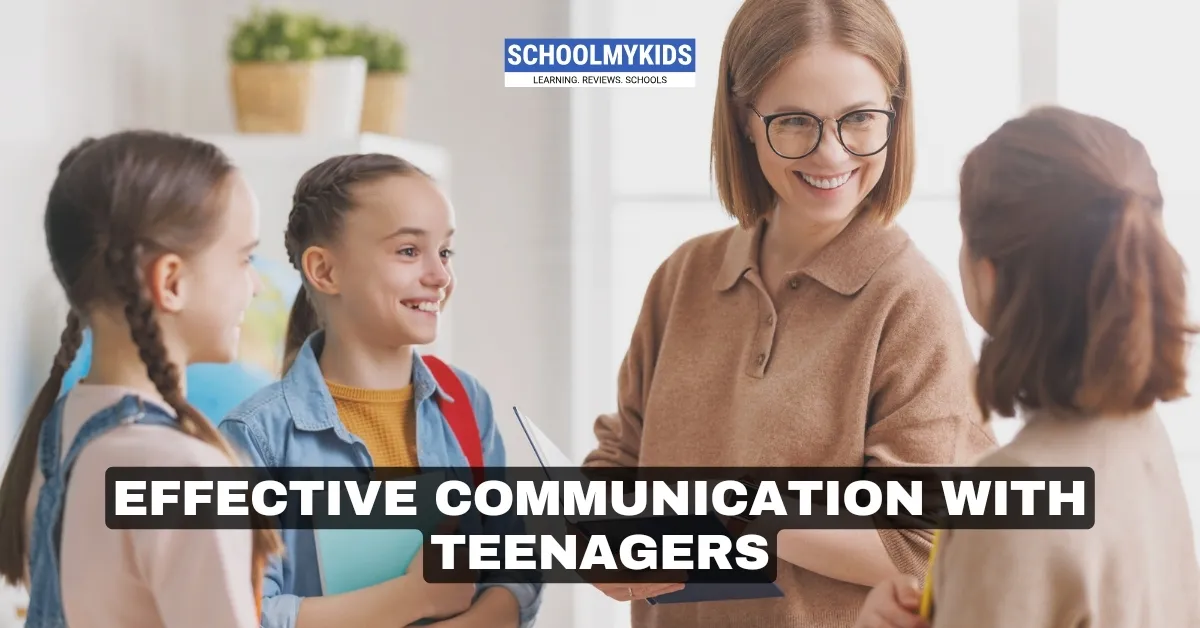Communication with teenagers can often feel like navigating a maze of emotions, evolving identities, and social influences. During adolescence, teens seek independence while still relying on their parents for guidance. This period is marked by emotional intensity, increased sensitivity, and a quest for self-identity. Effective communication during this critical developmental stage is key to maintaining strong relationships, promoting mutual understanding, and supporting their emotional growth.
Understanding Adolescent Development
To communicate effectively with teenagers, it is important to first understand the developmental changes they are going through. During adolescence, the brain undergoes significant rewiring, particularly in the areas that govern decision-making, risk assessment, and emotional regulation. As a result, teens may struggle with impulse control, experience mood swings, and grapple with emotional outbursts.
Key developmental changes to consider include:
- Cognitive development: Teens are transitioning from concrete to abstract thinking, which means they begin to question authority and societal norms. They are also more likely to engage in debates and challenge parental viewpoints.
- Emotional regulation: Due to hormonal changes, adolescents may experience intense emotions and struggle with controlling their reactions, leading to communication breakdowns.
- Identity formation: Teenagers are exploring who they are, often adopting new interests, hobbies, and social circles. This process can lead to clashes with parents as teens experiment with new personas or challenge household rules.
Understanding these changes allows parents to approach conversations with empathy and patience, recognizing that what may seem like rebellion is often part of normal adolescent development.
Active Listening
One of the most important aspects of effective communication with teenagers is active listening. Teens often feel misunderstood, and when parents actively listen, they validate their child's feelings and experiences. Active listening involves more than just hearing the words—it requires giving full attention, showing empathy, and reflecting on what the teen is expressing.
Strategies for active listening include:
- Giving your full attention: Put down phones or other distractions and make eye contact when your teen is speaking. This demonstrates that you value their thoughts and are fully present.
- Reflecting back their emotions: Use phrases like, "It sounds like you're really frustrated with school right now" or "I can see that you're upset about what happened with your friend." This shows empathy and helps teens feel understood.
- Avoiding interruptions: Allow your teen to finish their thoughts before offering advice or opinions. Interrupting can make them feel invalidated or dismissed, leading to further frustration.
By practicing active listening, parents can create a space where teens feel comfortable opening up and sharing their thoughts without fear of judgment.
Respecting Boundaries and Privacy
As teenagers strive for independence, respecting their boundaries and privacy becomes critical. Teens are in the process of developing their own identities and often feel the need to assert control over their personal space and decisions. This can lead to conflict if parents do not acknowledge this growing need for autonomy.
Ways to respect boundaries include:
- Knocking before entering their room: Simple gestures like knocking before entering their bedroom signal respect for their personal space and privacy.
- Allowing them to solve their own problems: While it's natural to want to step in and solve problems for your teen, giving them the opportunity to work through challenges fosters independence and self-confidence.
- Balancing supervision and freedom: Parents should stay involved in their teenager's life but also allow them the freedom to make their own choices. For example, giving them more control over their social activities while setting clear guidelines about safety.
Respecting boundaries helps build trust and mutual respect, key components of any effective communication strategy.
Open-Ended Questions and Non-Judgmental Responses
Teenagers often respond better to open-ended questions that encourage them to share more about their thoughts and feelings, rather than questions that can be answered with a simple "yes" or "no." Open-ended questions prompt deeper conversations and allow teens to express themselves more fully.
Examples of open-ended questions include:
- "How do you feel about that situation?"
- "What do you think you should do next?"
- "Can you tell me more about what's been going on with your friends?"
In addition to asking open-ended questions, parents should adopt a non-judgmental tone when responding to their teen's thoughts or actions. Harsh criticism or judgment can shut down communication and discourage teens from being open in the future. Instead, focus on understanding their perspective and offering guidance in a supportive manner.
Managing Conflict and Disagreements
Conflict is inevitable in any parent-teen relationship, but how that conflict is handled can determine whether communication remains open or breaks down. It's important for parents to remember that disagreements do not have to escalate into arguments. Instead, they can be opportunities to teach problem-solving skills and model respectful communication.
Strategies for managing conflict include:
- Staying calm: When tensions rise, it's easy for emotions to take over. Taking a moment to breathe and gather your thoughts before responding can prevent the situation from escalating.
- Using "I" statements: Rather than accusing your teen with statements like "You never listen," use "I" statements to express your feelings, such as "I feel frustrated when you don't help with chores."
- Agreeing to disagree: Sometimes, it’s okay to acknowledge that you and your teen have different viewpoints. Rather than trying to win the argument, focus on finding common ground or compromising.
Teaching teens how to handle conflict in a constructive way not only improves communication at home but also prepares them for navigating disagreements in other areas of life.
Setting Clear Expectations and Consequences
While communication should be open and respectful, it's still important to set clear expectations and boundaries. Teenagers need structure, and clear rules help them understand the limits within which they can explore their independence. However, it's essential that these expectations are communicated clearly and fairly.
Tips for setting expectations:
- Be specific: Rather than vague rules like "Behave responsibly," offer clear expectations such as "Be home by 10 PM" or "Complete your homework before going out with friends."
- Explain the reasons behind the rules: Teens are more likely to respect rules when they understand the rationale behind them. Explain why certain boundaries are important, such as ensuring their safety or helping them succeed in school.
- Discuss consequences ahead of time: Rather than doling out consequences in the heat of the moment, establish consequences for broken rules ahead of time. This allows teens to understand the potential outcomes of their actions and helps avoid power struggles.
Effective communication around expectations fosters responsibility and accountability, while still providing the freedom for teenagers to make their own choices.
Empathy and Emotional Support
Finally, one of the most powerful tools in communicating with teenagers is empathy. Adolescence is a challenging time, filled with emotional ups and downs, peer pressure, and academic stress. Parents can support their teens by offering empathy and emotional validation, even when they don’t fully understand what their child is going through.
Ways to show empathy include:
- Acknowledging their feelings: Validate your teen's emotions by acknowledging that what they are experiencing is real and important to them, even if it seems minor from an adult perspective.
- Offering support without taking over: Let your teen know you're there for them if they need advice or help, but give them the space to solve problems on their own first.
- Being patient: Teenagers may not always want to open up right away, and it’s important to give them the time and space they need to process their feelings.
Empathy creates a deeper emotional connection and strengthens the parent-teen relationship, making it easier to navigate the complexities of adolescence together.
Conclusion
Effective communication with teenagers requires a combination of empathy, patience, and active listening. By respecting their growing need for independence while maintaining open lines of communication, parents can build trust and support their teenager’s emotional development. Setting clear expectations, managing conflict constructively, and fostering mutual respect are key elements that help both parents and teens navigate this challenging yet rewarding phase of life.








Be the first one to comment on this story.